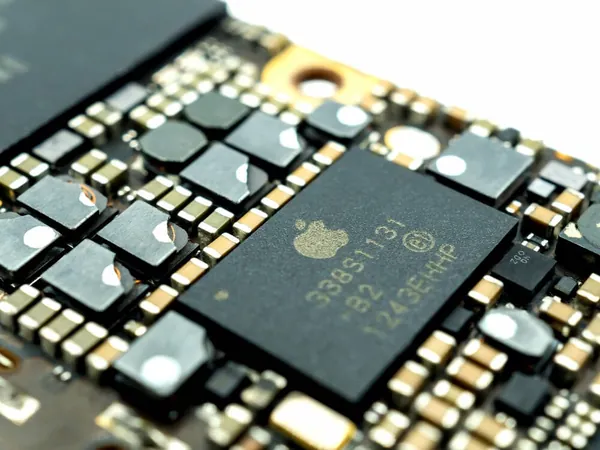
Apple's U.S. Manufacturing Dreams Dashed by Analysts
2025-05-27
Author: Lok
The iPhone Isn't Coming Home Anytime Soon
Despite President Trump's tough talk about imposing hefty tariffs on iPhone imports, experts agree that Apple isn't likely to shift its manufacturing back to the U.S. anytime soon. According to analysts at Morgan Stanley, Trump's recent tariff threats just won't move the needle for the tech giant.
Tariffs Won't Cut It
Morgan Stanley's findings indicate that even a steep 145% tariff previously proposed by Trump might have nudged Apple in the right direction. However, after Trump retreated from that stance, it became economically unfeasible for Apple to manufacture its devices domestically.
An analysis revealed that manufacturing an iPhone in the U.S. could inflate its price by at least 35%, meaning a $999 iPhone could soar to $1,350—a steep rise for consumers.
Experts Say More Than Tariffs Stands in the Way
Analyst Runar Bjorhovde from Canalys added that tariffs are just one piece of the puzzle. If Apple were to relent to Trump's demands, it would necessitate massive investments in U.S. facilities, employee training, and managing the soaring costs associated with local production.
A Long Journey Ahead
Morgan Stanley predicts that if Apple did decide to go this route, it would take a minimum of two years to establish the necessary infrastructure and workforce for U.S. iPhone production. Realistically, we could be looking at four or more years, based on timelines from other large-scale projects like TSMC's new Arizona chip factory.
In short, the first U.S.-made iPhone might not hit the market until after Trump is no longer in office.
Challenges Compound In a Geopolitical Landscape
Bjorhovde is skeptical, suggesting the timeline could extend to three to five years, considering logistical complications like importing skilled workers from China and establishing solid investments.
Legal Hurdles Add Complexity
It's also worth noting that Trump's ability to impose targeted tariffs is limited. Many smartphones currently enjoy exemptions, providing only a couple of legal pathways to enforce tougher tariffs.
Apple's Response: A Strategic Pivot?
While iPhones may remain overseas, Apple isn't sitting idle. The company has committed $500 billion to U.S. investments over the next four years in areas such as AI and workforce training, though not for iPhone manufacturing.
Morgan Stanley suggests that Apple may instead focus on reshoring smaller products like Macs and AirPods, which would require far less investment. This would allow Apple to placate Trump's administration while avoiding significant shifts in their iPhone production strategy.
Conclusion: A Win-Win Situation?
Ultimately, there's a chance that Apple may find a middle ground. By reshoring other products, they could present a win-win solution, offering the Trump administration a symbolic victory without distorting their core iPhone manufacturing model. However, the clock is ticking, and both Apple and analysts are watching closely.




 Brasil (PT)
Brasil (PT)
 Canada (EN)
Canada (EN)
 Chile (ES)
Chile (ES)
 Česko (CS)
Česko (CS)
 대한민국 (KO)
대한민국 (KO)
 España (ES)
España (ES)
 France (FR)
France (FR)
 Hong Kong (EN)
Hong Kong (EN)
 Italia (IT)
Italia (IT)
 日本 (JA)
日本 (JA)
 Magyarország (HU)
Magyarország (HU)
 Norge (NO)
Norge (NO)
 Polska (PL)
Polska (PL)
 Schweiz (DE)
Schweiz (DE)
 Singapore (EN)
Singapore (EN)
 Sverige (SV)
Sverige (SV)
 Suomi (FI)
Suomi (FI)
 Türkiye (TR)
Türkiye (TR)
 الإمارات العربية المتحدة (AR)
الإمارات العربية المتحدة (AR)